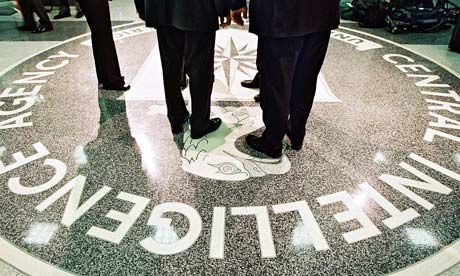WikiLeaks cables: CIA drew up UN spying wishlist for diplomats
• Agency identified priorities for information on UN leaders
• Cables reveal further evidence of intelligence gathering
• Cables reveal further evidence of intelligence gathering

The US state department's wishlist of information about the United Nations secretary-general, Ban Ki-moon, and other senior members of his organisation was drawn up by the CIA, the Guardian has learned.
One of the most embarrassing revelations to emerge from US diplomatic cables obtained by the whistleblowers' website WikiLeaks has been that US diplomats were asked to gather intelligence on Ban, other senior UN staff, security council members and other foreign diplomats – a possible violation of international law.
. But he refused to identify it.
The Guardian has learned that the intelligence shopping list is drawn up annually by the manager of Humint (human intelligence), a post created by the Bush administration in 2005 in a push to better co-ordinate intelligence after 9/11.
The manager of Humint sets out priorities for the coming year and sends them to the state department. The actual form of words used in the diplomatic cables is written by the state department, based on the CIA's list of priorities.
The cables are tailored for each embassy, such as the US mission to the UN.
The list of priorities, though co-ordinated by the manager of Humanint, is drawn up with input from all US intelligence agencies, including intelligence analysts at the state department.
The US has been keen to stress that its diplomats are not acting as spies, a label that could endanger their lives.
A senior US intelligence official said: "It shouldn't surprise anyone that US officials at the United Nations seek information on how other nations view topics of mutual concern. If you look at the list of topics of interest in this routine cable, the priorities represent not only what Americans view as critical issues, but our allies as well.
"No one should think of American diplomats as spies. But our diplomats do, in fact, help add to our country's body of knowledge on a wide range of important issues. That's logical and entirely appropriate, and they do so in strict accord with American law."
Earlier, Crowley continued to deny that the American diplomatic corps is involved in spying in any way. "They are diplomats, they are not intelligence assets," said Crowley. "They collect information that is of use in helping inform our policies and actions … the secretary of state is not telling her diplomats to be spies."
The intelligence gathering directives were sent from the intelligence operations office within the state department's bureau of intelligence and research, which describes itself as "at the nexus of intelligence and foreign policy".
They made clear that the intelligence operation was not merely a useful addition to the work of a secret service, but that "the [intelligence] community relies on state-reporting officers for much of the biographical information collected worldwide".
Biographic reporting is defined in the cables as including "credit card account numbers, frequent flyer account numbers" as well as "compendia of contact information".
New cables released tonight reveal that US diplomats at the embassy in Asunción, the capital of Paraguay, were ordered to obtain dates, times and telephone numbers of calls received and placed by foreign diplomats from China, Iran and the Latin American socialist states of Cuba, Venezuela and Bolivia.
The US is concerned about an increasing Islamist terrorist presence in Paraguay, and the influence of China.
Washington also wanted the foreign diplomats' internet user account details and passwords, and the same depth of information for some local government and military leaders and "criminal entities or their surrogates", according to a US cable sent in 2008.
New cables released tonight also reveal that Washington has called for diplomats in Romania, Hungary and Slovenia to provide "biometric" information on "current and emerging leaders and advisers" as well as information about "corruption" and information about leaders' health and "vulnerability".
Clinton continued to face awkward questions about an intelligence directive which went out under her name in 2009 aimed at the UN leadership, which was revealed in a separate "national human intelligence collection directive". It called for the collection of "biometric" data on permanent security council representatives, and passwords and personal encryption keys used by top UN officials – in possible contravention on international law.
A similar cable to embassies in the Great Lakes region of Africa said biometric data included DNA, as well as iris scans and fingerprints.
A leading expert on UN law today said the proposed activity in the directive breached two international treaties and could lead to the US being censured by the UN general assembly or even, in extreme circumstances, prosecution at the international criminal court.
The targeting of diplomats from North Korea and the permanent representatives of the security council from China, Russia, France and the UK leaves the US government exposed to action from any of those countries.
Dapo Akande, lecturer in international law at Oxford University, said: "Obtaining passwords and information on communications systems violates the 1947 headquarters agreement between the US and UN and the general convention on the privileges and immunities of the United Nations.
"The only reason they can be asking for this information is to break into the communication systems or monitor them in some way."
